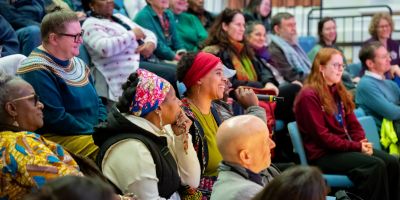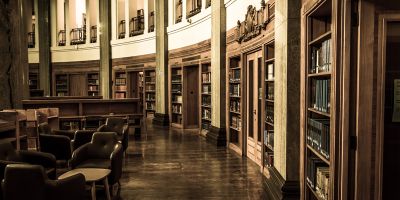From the Director
Each month Professor Gregory Radick surveys new developments in and around the LHRI.
Did you catch our colleague Matthew Treherne on BBC Radio 4’s In Our Time the other morning? It’s a programme that regularly attracts millions of listeners who, it turns out, hanker after serious discussion of seemingly specialist matters, from parasites to purgatory (Matthew’s topic). The size of the audience is partly down, of course, to the skill with which our Chancellor, Melvyn Bragg, orchestrates learned conversations – something many of us got to experience live a couple of years ago when he chaired an evening debate about the future of the book. But the important fact remains that he has an audience at all because so many people beyond the academy want to know and be challenged.
I’m the more delighted that the next annual British Academy/LHRI Lecture will feature in the programme of the 2017 Ilkley Literature Festival, taking place next October. The Festival is one of this country’s largest, with a longstanding relationship with the University of Leeds, and a loyal following among exactly the sorts of people who are ready to be excited by new ideas. The date has yet to be finalized, but the speaker will be Dr Philip Lancaster, a specialist in the work of the WWI-era poet and composer Ivor Gurney. A scholar-performer in the Ian Bostridge mode, Lancaster will, we hope, be accompanied by a pianist for an evening that combines history, poetry and music.
Between then and now, of course, much will be happening, including the launch of the 2017-8 Sadler Seminars, about which I’ll write more next month. For now, it remains to offer congratulations to Faculty colleagues on some impressive grant successes, including Simon Hewitt (PRHS) for a Leverhulme Early Career Fellowship on the consequences of contradictions, and Helen Graham (FAHACS) and others for a large AHRC Research Project aiming to develop the potential of the collections of the Bradford-based National Science and Media Museum.




